Resource Center
The Transit Workforce Center is pleased to host a curated collection of publications and other materials to assist stakeholders engaged in transit workforce development. The Resource Center includes case studies, training materials, research reports, and other materials of interest, including publications produced by federal government agencies, transit organizations, and independent research entities. Resources may be filtered by topic, resource type, and transit mode. This TWC blog post explains how to use the Resource Center.
We are continuing to update the Resource Center regularly. Please contact us via the Request Help menu option if you would like assistance using the Resource Center or are looking for resources on a particular topic. We also welcome suggestions of topics or specific resources to add.
Content in external resources linked from the Resource Center is solely the responsibility of the resource authors and does not necessarily reflect the perspectives of or endorsement by the Transit Workforce Center.
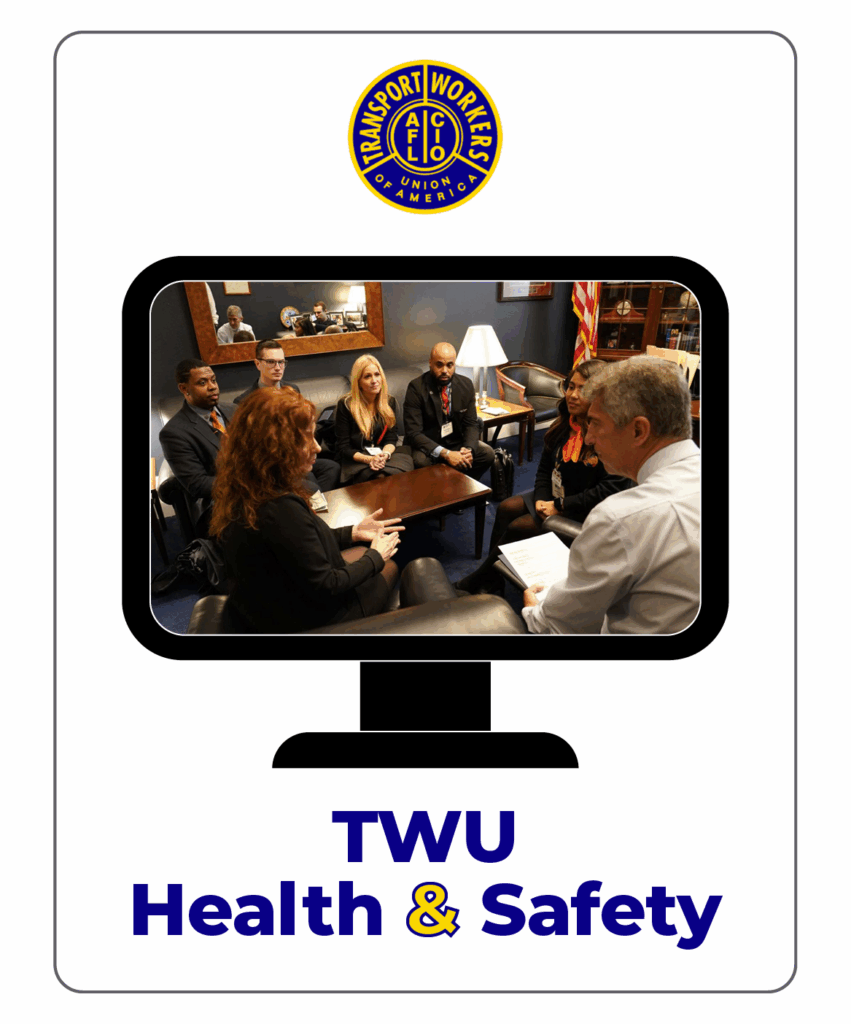
TWU Health & Safety
This page offers various health and safety resources for transportation workers, including COVID-19 guidance, regulatory information, tips for working in extreme weather, and links to trainings and other resources.
TWU International
TOPICS: Policy and Planning, Safety and Health
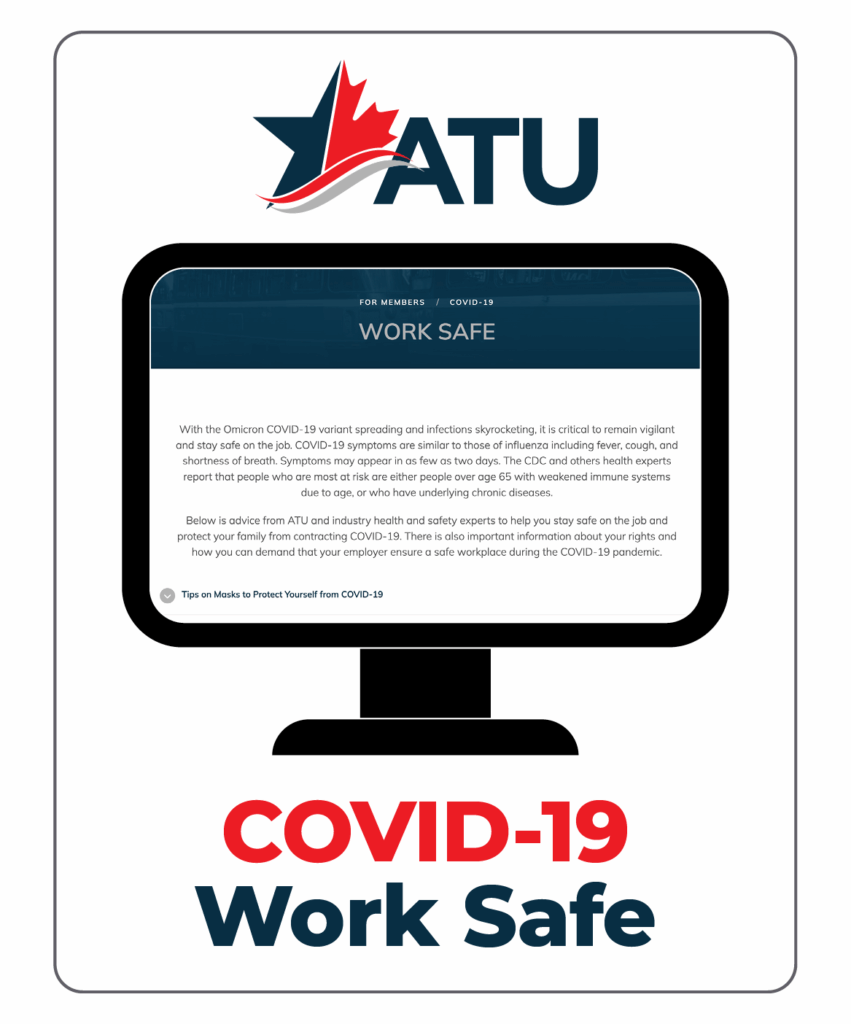
COVID-19 Work Safe
This page highlights resources from from ATU and industry health and safety experts to help frontline workers stay safe on the job and protect their families from contracting COVID-19. It also includes important information about workers’ rights and how you can hold your employer accountable to ensure a safe workplace during the COVID-19 pandemic.
ATU International
TOPICS: Policy and Planning, Safety and Health
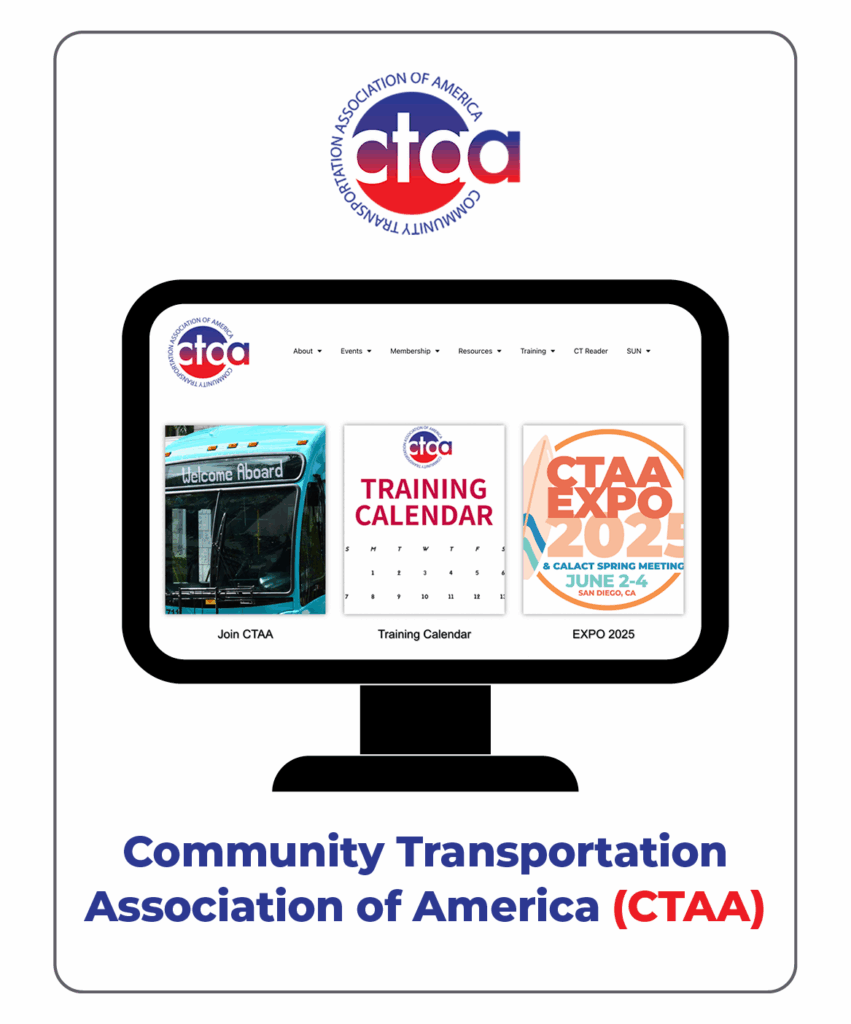
Community Transportation Association of America (CTAA)
CTAA is a nationally recognized expert in rural, small urban, tribal and specialized transportation services. Founded by a small group of community transportation professionals in 1989, organizations and individuals have joined CTAA as members to share strategies, receive training and certification specific to their needs, advance policy and legislative priorities, and improve mobility options in their communities.
Community Transportation Association of America
LEARN MORE
CTAA members get discounted access to all CTAA training and certification programs – including the annual Community Transportation EXPO and other CTAA Events – and help set the training and certification class agenda with opportunities to suggest and develop new courses and sessions.
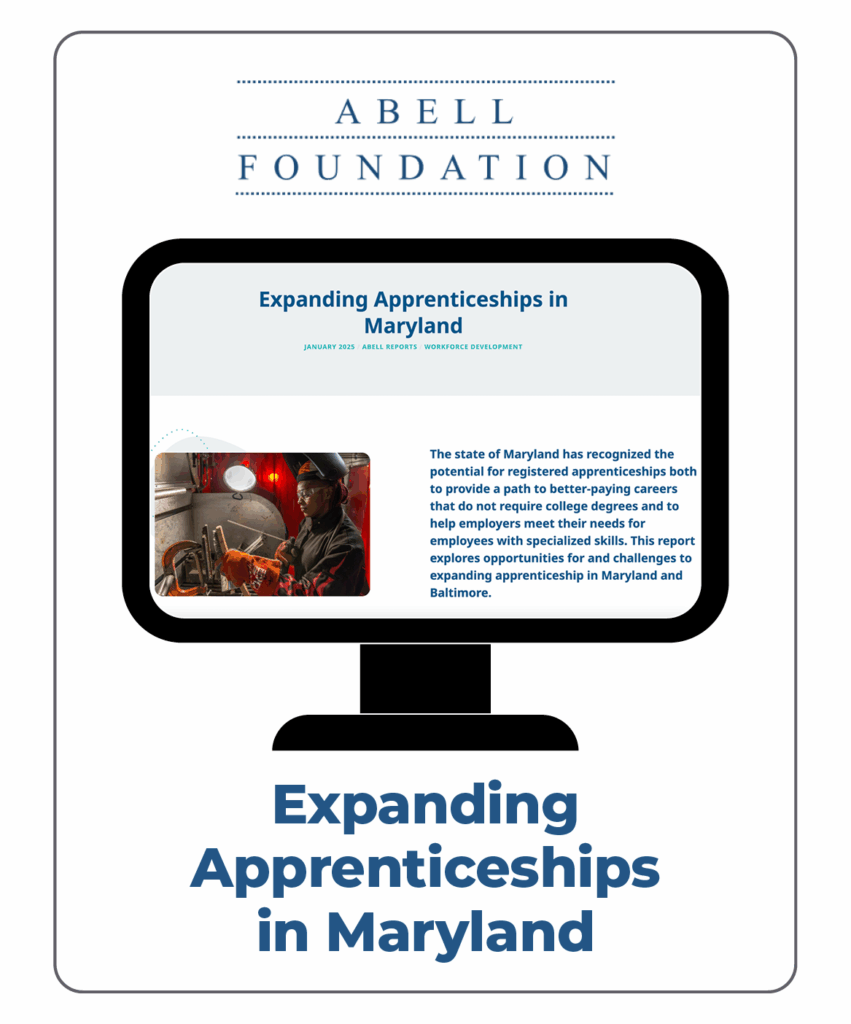
Expanding Apprenticeships in Maryland
The state of Maryland has recognized the potential for registered apprenticeships both to provide a path to better-paying careers that do not require college degrees and to help employers meet their needs for employees with specialized skills. This report explores opportunities for and challenges to expanding apprenticeship in Maryland and Baltimore.
Abell Foundation
January 2025
LEARN MORE
The report includes topics such as overcoming barriers to participation, such as transportation and childcare; countering employer misconceptions about apprenticeship; supporting apprenticeship in non-traditional sectors; and improving data collection and analysis.
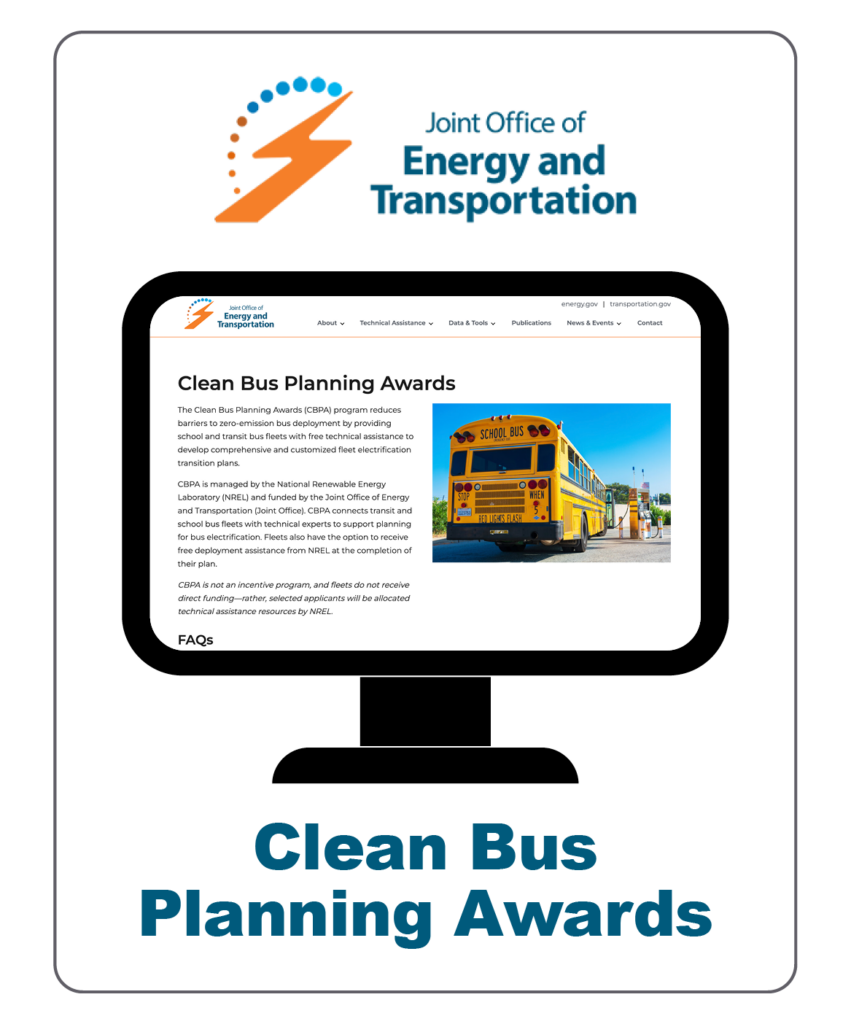
Clean Bus Planning Awards
The Clean Bus Planning Awards (CBPA) program reduces barriers to Low-No bus deployment by providing school and transit bus fleets with free technical assistance to develop comprehensive and customized fleet electrification transition plans. Applications may be submitted on a rolling basis.
National Renewable Energy Laboratory
TOPICS: Low-No, Policy and Planning
CBPA is not an incentive program, and fleets do not receive direct funding—rather, selected applicants will be allocated technical assistance resources by NREL.
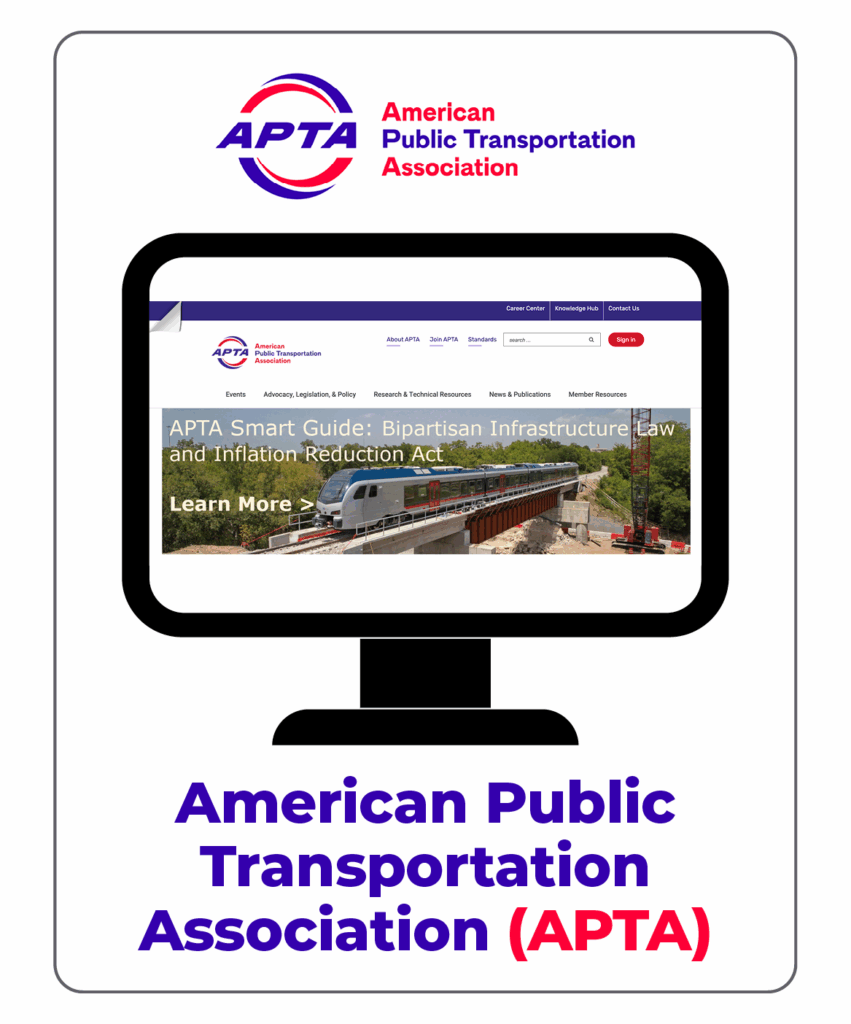
American Public Transportation Association (APTA)
APTA is a nonprofit international association of more than 1,500 public and private sector member organizations. Organizations must pay for membership; benefits include advocacy for federal funding and policies, research, technical expertise and consulting services, workforce development programs, educational conferences and seminars, and 135 subject-matter working committees, including a workforce development committee
American Public Transportation Association
LEARN MORE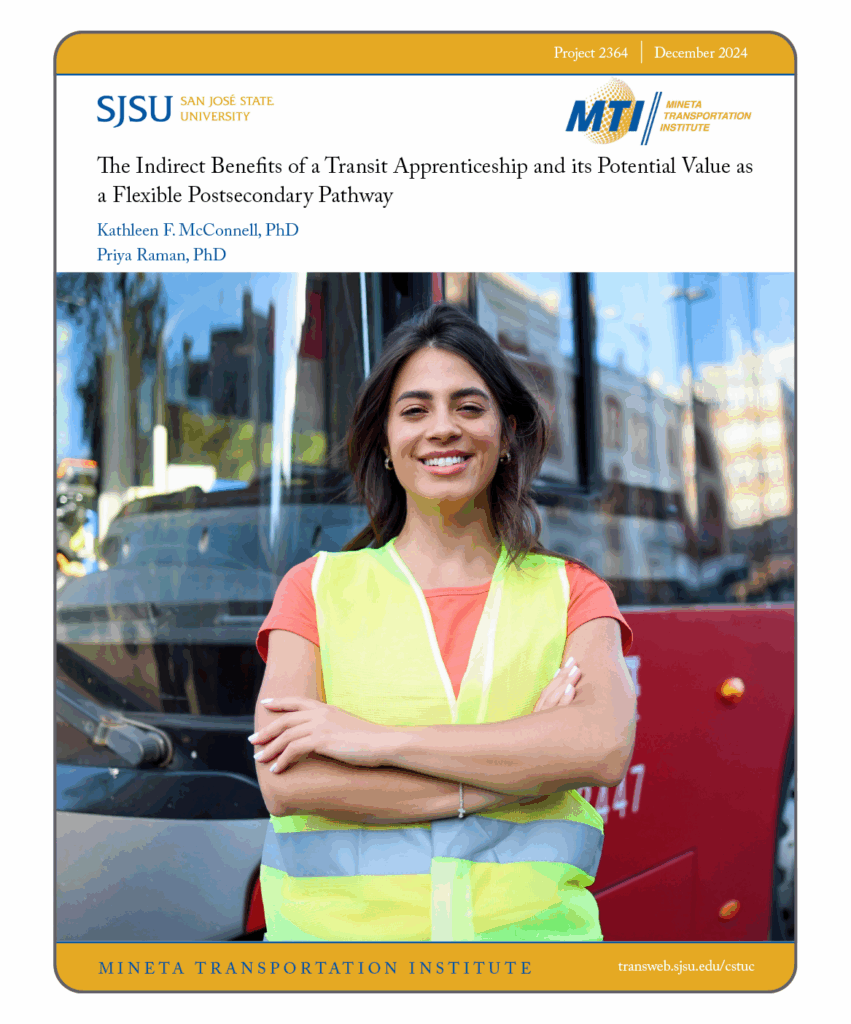
The Indirect Benefits of a Transit Apprenticeship and its Potential Value as a Flexible Postsecondary Pathway
As apprenticeships become more prevalent in the transit industry, they can also emphasize both technical and soft skills to invest in career advancement. This can attract young people to transit careers, which helps address challenges with recruitment and an aging workforce. Santa Clara Valley Transportation Authority’s Joint Workforce Initiative (JWI) employs this model by formally recognizing skills acquisition with accredited certificates. This study explores the JWI’s strengths within the revival of non-degree credentials fueled by efforts like the California Guided Pathways Program. Drawing on guidelines for connecting job training with degree programs, the study details the importance of affordability, portability, and articulation and outlines how these features could be further developed in the JWI.
Mineta Transportation Institute
December 2024
TOPICS: Apprenticeship, Career Pathways, Community Engagement, Hiring and Recruitment, Workforce Shortage
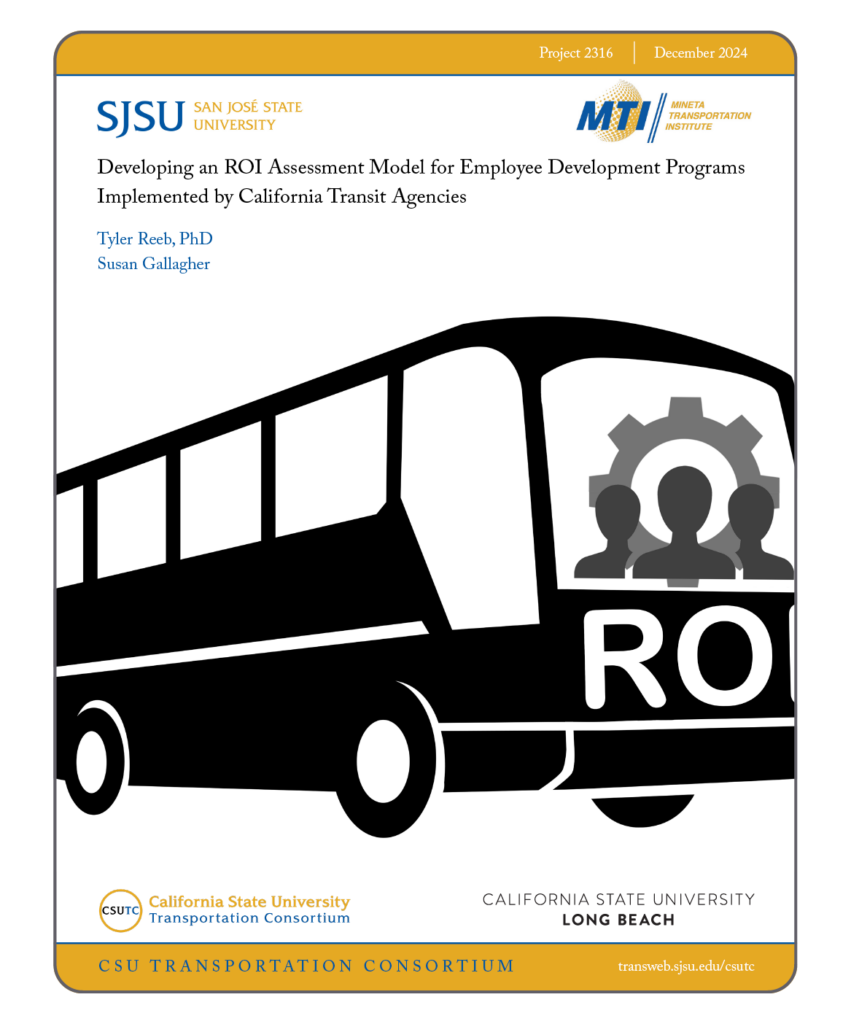
Developing an ROI Assessment Model for Employee Development Programs Implemented by California Transit Agencies
Though employee development programs improve recruitment, retention, and morale, transit agencies struggle to solicit adequate funding for these programs absent the ability to demonstrate their value to a broader audience. This report includes a literature review, survey, and follow-up interviews conducted by the MTI research team that found program outcome measures and programmatic expense data required for ROI assesment is similar across employee development programs but is not currently being uniformly collected across agencies. The research findings demonstrate the need for technical assistance to combat data collection challenges such as staff capacity and know-how.
Mineta Transportation Institute (MTI)
December 2024
TOPICS: Hiring and Recruitment, Program Evaluation and ROI, Retention, Trainer and Mentor Development, Training, Workforce Shortage
Transit agencies will necessarily incur expenses in efforts to improve the recruitment, retention, and morale of employees, but will struggle to solicit adequate funding unless they are able to demonstrate the value of such efforts to a broader audience. Thus, developing and implementing ROI assessments is critical. The literature review, survey, and follow-up interviews conducted by the MTI research team found that program outcome measures and programmatic expense data required for ROI is similar across employee development programs but is not currently being uniformly collected across agencies. The research findings demonstrate the need for technical assistance to combat data collection challenges such as staff capacity and know-how.







